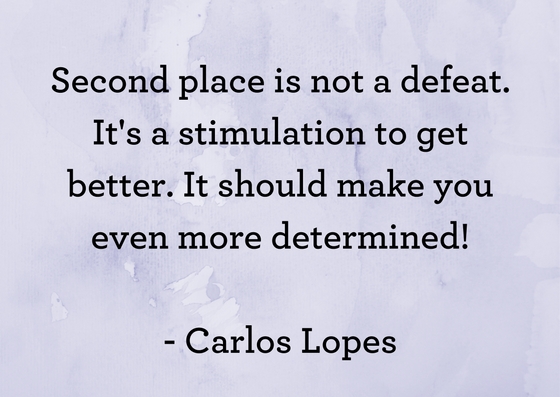
What You Can Learn From Not Being ‘The Chosen One’
You strut out of that interview and you just know you did a brilliant job.
But then, you get the dreaded ‘it was a really hard decision, but we’re going to go with the other person’ call. Ouch!
Somehow getting all the way to the final interview and then getting rejected feels so much more personal than if you had never even gotten an interview in the first place.
It can be incredibly frustrating if you often find yourself in this position, especially if you didn’t get proper feedback about why you weren’t ‘The Chosen One’. You might be thinking to yourself it’s a waste of your time but I’m here to tell you that this is a massively great learning opportunity and you should see it as that.

The first thing you will have to do is ask for more feedback. Make it clear that you really do want the honest truth and that you’re not going to get defensive or upset.
Something along the lines of ‘Thank You, but I believe there’s always something I can learn from these situations and I really would appreciate any feedback you can give me’ should do the trick.
ON TOP OF GETTING USEFUL FEEDBACK, HERE ARE THE THREE TOP PROBLEM AREAS I’VE NOTICED THAT TEND TO TRIP PEOPLE UP AT THE FINISH LINE:
1. THE INTERVIEW TECHNIQUE
If you’ve gotten to the final interview stage, it’s probably safe to assume you’ve got the basics right. However, I often hear from hiring managers who had all but made up their mind to hire a candidate after the initial meeting, but who were disappointed by their performance in the final interview.
WHAT YOU CAN DO
Even if you got on like a house on fire in the first meeting and the interviewer sets up your next meeting as a ‘casual chat over coffee’, never assume it’s just a formality. You still need to take your preparation, and the meeting, seriously.
Another common mistake is assuming that the connection you have with the original interviewer will be enough to seal the deal. Often there will be an extra interviewer at the last meeting (for example, an HR officer or a 2IC to the hiring manager). They might not seem like the decision maker, but trust me: neglect them at your peril.
2. THE REFERENCES:
You’ve aced the final interview, but your references are letting you down.
WHAT YOU CAN DO:
Keep in touch with your referees, even when you’re not actively searching for a job, and always give them a call at the beginning of the job search to check whether they’re happy to act as a referee. If you’re at the final interview stage and know they’ll be getting a call, give your referee a heads up to let them know about the job (including what it entails and what the interviewers are looking for in a candidate) and how excited you are about it.
This gives them a chance to refresh their memory of your work performance, particularly focusing on areas that are likely to be of interest to the interviewer, so that they can give a more detailed and relevant reference. Don’t forget to thank them afterwards, regardless of whether you got the job or not.
3. THE PROCESS:
Your interview technique might be perfect, but often it’s what you do outside of the interview that wins you the job. Many times I’ve seen a candidate get offered a role over someone who was actually more impressive during the interviews, because of the way they handled the rest of the process.
WHAT YOU CAN DO:
Return calls and complete forms or tests promptly. Be open, honest and straightforward. And always make sure you’re positive and polite, no matter if you’re dealing with the PA or the CEO.
Notice I haven’t included salary on this list. That’s because if you get all of this stuff right, (and provided neither you nor the employer has wildly unrealistic expectations), salary will rarely be the real reason you miss out on a role. If you’re really right for them, the vast majority of employers won’t hire the other guy just because it will cost them a few thousand dollars less. And if they do, then you just dodged a bullet, my friend.
Getting to the final stages of an interview process only to not get the job needn’t be a bad thing, but a step closer to the right gig for you. Pinpoint where you can improve in the areas mentioned above and you might just find yourself landing that dream job and living out the destiny you know is yours.
Do you need some extra help when it comes to having mad interview skills? Head on over to Crispin Robertson’s blog: 7 Tips That Will Help You Interview Like A Champ. With almost 20 years of recruitment experience, Crispin has some great insight.

